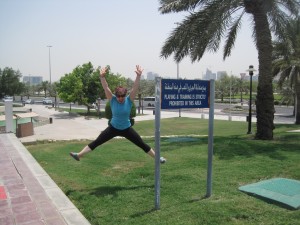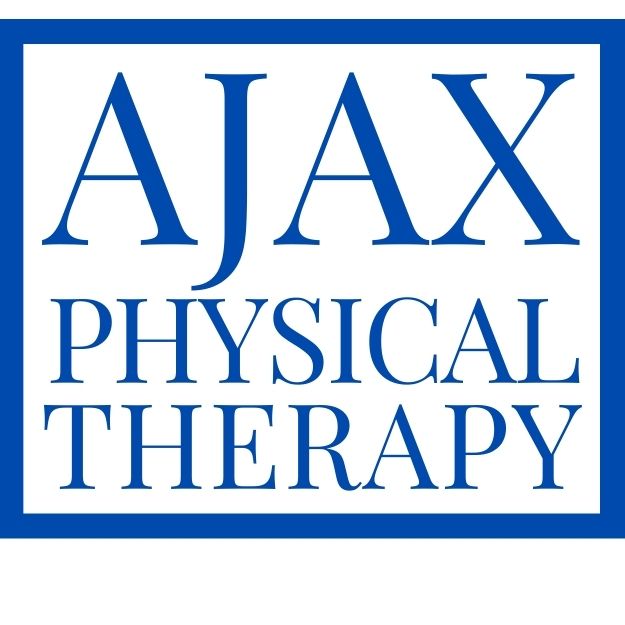Stick with me, this isn’t your average tale of of international crimes committed in clandestine night clubs or amongst thugs with weapons. This is far more nerdy. Far less violent. But, it’s real, it’s effective, and it’s highly destructive. I think it’s super interesting – why would international crime choose physical therapy?
In 2006, I was a new grad serving on a committee within FSBPT (Federation of State Boards of Physical Therapy). The committee dealt with the administration of the PT liscensure exam. While we didn’t deal directly with the security of the exam, I got to be front row for some high drama taking place across the Pacific Ocean.
As I remember it:
Some test takers in the US territory of Guam had higher scores than they should have. Guam is a convenient location to take the test for foreign-trained PTs coming from across the Pacific. After statistical analysis of test results, a cluster of test takers originating in the Philippines was identified as having abnormally high scores. Upon further investigation by US and Philippines law enforcement, these abnormally high scores all seemed to be coming from people who had taken one specific test-prep course. This test review course had sent employees to take the NPTE and steal questions by a variety of methods – small cameras, writing down questions, memory, etc. Unsuspecting test-preppers had taken the review course with stolen questions and were unknowingly exposed to hundreds of actual test questions. These course participants then went and did REALLY well on the test… so well that the statistical anomalies drew some attention. Law enforcement bodies from both countries investigated and prosecuted those who had stolen test materials. FSBPT stopped offering the test in US territories and increased security to the test. In addition, the test was limited to several specific dates as it is administered now, rather than being offered throughout a portion of the year as it had been previously – making it harder to steal and re-use test questions. With heightened security of the test and scrutiny of specific testing centers, the test is again being offered in specific test centers in US territories including Guam.
Guam is is a location very far from the US – about 5,500 miles off the coast of California, almost 4,000 miles from Honolulu, but only about 1,300 miles from the Philippines.
From a 2011 FSBPT report¹:
In response to compelling evidence gathered by the Federation reflecting systematic and methodical sharing and distribution of recalled questions by significant numbers of graduates of physical therapy schools in Egypt, India, Pakistan, and the Philippines, as well as several examination preparation companies specifically targeted to these graduates, the Federation in 2010 temporarily suspended NPTE testing for all graduates of schools located in those countries, pending the development of a separate, secure examination. This evidence was obtained through extensive forensic analyses of NPTE performances, as well as a variety of legal actions brought by the Federation in the United States and abroad.
That’s crazy stuff, right? Who knew why security around the NPTE was so tight – there’s reasons, the incident I described is only one reason. People domestic and abroad make attempts to steal test data more frequently than you would think. The test materials are held under very tight security and the cost of protecting the test questions is very high – a major reason why the test cost hundreds of dollars to take.
I only share the above story to add some plausibility to what I am about to describe has happened on HoboHealth. Foreign entities have attacked the profession of physical therapy previously – and they’re at it again.
At this point, we’re all aware of the desire of foreign powers to sow discord through our society. “Foreign Bad Actors” as they are now frequently called are known to have participated in our online discussions, pretending to be normal, fed-up Americans. There are known warehouses of people in Russia and other countries sitting at computers where their only job is to interfere in American online discussion² ³. These paid trolls place misinformation all across social media and try to start arguments where ever they can. The ultimate goal is to make conversations within the US divisive – to pit us against each other and prevent us from being able to come together and do anything productive. It seems this strategy has been very effective within the realm of politics, but never did I think HoboHealth would be a target. Frankly, it’s flattering.
In July, two separate comments came through on HoboHealth blogs. My first reaction anytime I get an email notifying me of a comment on my blog is cautious excitement. It’s wonderful to have a conversation happening on my site, but more often than not, it’s spam – these comments stood out as a very different kind of spam. The two comments came through the same day (July 4th none-the-less) and each were well written but very aggressive. On closer inspection, it turns out each came from foreign email addresses – Canadian, I don’t know what to make of that.
Here are what the posts said:
“Manual therapists who self identify as such should spend time actually reading the current research and sober up. Those who refuse to do so will be marginalized as a fringe group, further eroding the credibility of the profession, something it can hardly afford. Unless you have super powers, maybe stop pretending you deserve superhero status. The legend is in your own mind, but only.”
“The DPT is a ginormous waste of money and its [sic] starting to look like the profession is willing to eat its young just to survive. Stuck in the past, too rigid and clinging to orthodoxy of the past to demonstrate the flexibility needed for change that they tell clients they need. Welcome to the slow swirl.”
These fake comments reflect real sentiments spread by a loud, but minority few who have blogs and participate extensively on Twitter. I have previously railed against similar real voices who preach anti-manual therapy (Why I AM a Manual Therapist). But the truth is these are fake posts, by people or computer algorithms that likely have nothing to do with physical therapy. It is wild to me that the body or government behind these posts is so desperate to create arguments that they would go after physical therapists. It makes me wonder, is it just another part of a foreign government’s efforts to sow discord in our culture where ever they can? Or has a competing profession gotten in the business of starting a troll farm? The topics they went after, Doctoral degrees and manual therapy, do seem like the type of thing a very specific profession we often compete with would want to have us divided on…
Don’t get carried away with anything you might read from any commenter on the internet. I have heard it estimated that only 10% of the physical therapy profession actively participates on the internet. Meaning, if you read a minority opinion on the internet (say from the anti-manual therapy camp), that opinion may be held by only a small portion of the 10% participating on the internet – a VERY small minority of the whole profession. It turns out, that some of the voices chiming in to support those minority, extremist opinions may not even be real – just paid trolls, specifically participating to create conflict.
I’ll never know the source of these posts, but I believe the moral is this – If fake accounts are being made to post on lil’ ol’ HoboHealth, then they are posting EVERYWHERE. Be very, very wary of where you get your information, who you debate with, and when you allow yourself to believe that a real, genuine person is on the other side of the computer screen. Paid trolls are intervening in every little innocuous conversation we have on any public platform.
A final tangential topic just came to mind: Fake research. I only recently heard about fake research, but I believe we’ll all be hearing about it much more in the near future. I first heard about fake research publications a few weeks ago on this short episode of PT Pintcast featuring Chad Cook. I have since heard about it on NPR in different arenas outside of PT. There are journals that are publishing completely unreviewed, unmonitored research – I find the phenomena totally mind-blowing. We need, in all aspects of our lives, to use reliable resources. Whether in research or news, there is too much information available for the average individual to vet it all. We need to insist our research comes from research journals with highest impact factors and news that comes from similarly reliable resources.
That’s my take. Be careful what you read. Treat each other kindly in person and on the internet.







